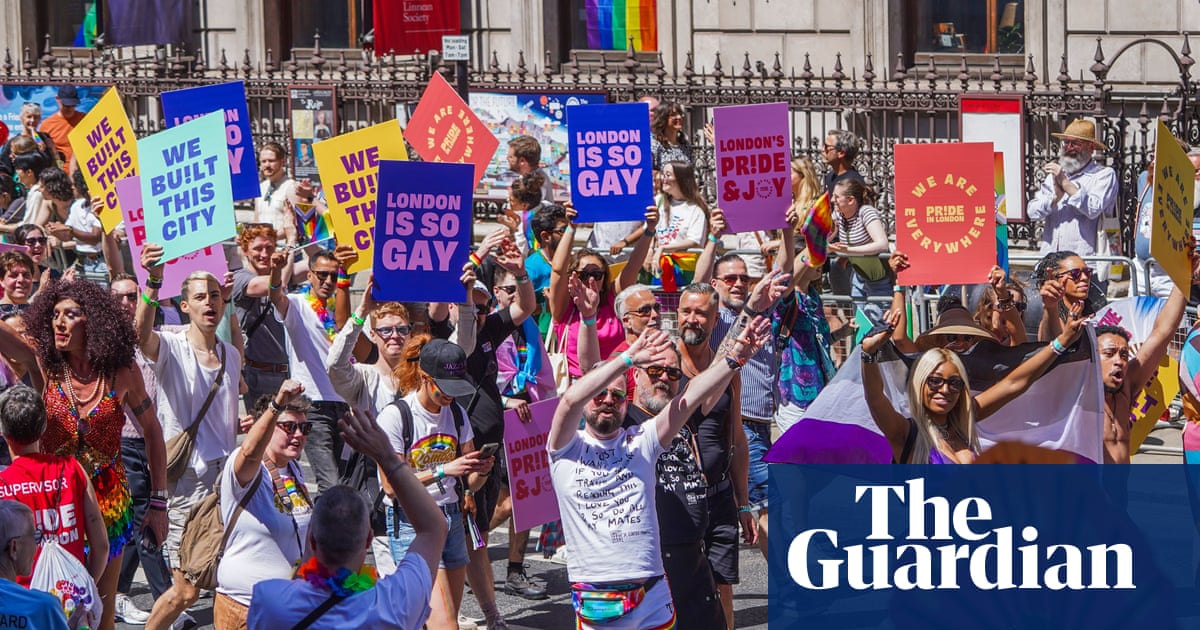The UK’s largestPrideorganisers have suspended political party participation in their events in “unequivocal solidarity” with the transgender community.
In a joint statement, the organisers of Pride events in Birmingham, Brighton, London and Manchester said the move was a “direct call for accountability and a refusal to platform those who have not protected our rights” after theUK supreme court rulinglast month.
The highest court in the UK ruled that the terms “woman” and “sex” in theEquality Act 2010refer only to a biological woman and to biological sex. Five judges ruled unanimously that the legal definition of a woman in the act did not include transgender women who hold gender recognition certificates.
The UK government said the ruling brought “clarity and confidence” for women and those who run hospitals, sports clubs and women’s refuges.
The Pride organisers said: “As the organisers of the UK’s largest Pride events in Birmingham, Brighton, London andManchester, we come together today in unequivocal solidarity with our trans community.
“We are united not only in message, but in purpose. At a time when trans rights in the UK are under growing attack, our resolve has never been stronger: we will not allow progress to be undone.
“We will not stand by as the dignity, safety and humanity of our trans siblings are debated, delayed or denied.”
The organisers called on the UK to be a “global leader in human rights and equality”, adding: “We need every political party to stand unequivocally with every member of the LGBTQ+ community, and to centre the voices of trans people in policy, practice and public life.”
The organisers want protections for trans people under the Equality Act, access to NHS gender-affirming healthcare, a reformed gender recognition certificate process and funding for trans-led services and support organisations across the UK.
Fourteen national LGBTQ+ charities wrote to Keir Starmer seeking an urgent meeting to discuss what they describe as “a genuine crisis for the rights, dignity and inclusion of trans people in the UK” after the supreme court’s ruling.
Gender-critical campaigners said the ruling was a “huge reset” that left them feeling “vindicated and relieved”. Susan Smith, a co-director of the campaign group For Women Scotland, which brought the case to the supreme court, said: “Gender reassignment is a protected characteristic, and it is still protected. But saying that women were just some amorphous collection of people and it was an identity anyone could have, it was really downplaying the very real and different issues that affect men and women.”
Maya Forstater, who founded the campaign group Sex Matters after she won an employment tribunal that found she had beenunfairly discriminated againstbecause of her gender-critical beliefs, said the ruling brought “relief, vindication, happiness and pride”.
She said the court judgment was about “recognising rules and reality”. “If you’re a man, you can call yourself what you like, you can dress how you like, but you cannot work in a rape crisis centre, you cannot go into a woman’s changing room,” she said.
